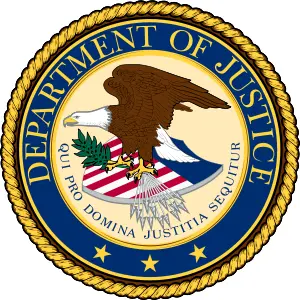Big Game Changes Ahead for US Online Poker
George | January 28, 2019

Looking back at 2018, online poker in the US started to grow considerably again after facing challenges for over a decade. Throughout the year, the Pennsylvania Gaming Control Board (PGCB) issued several online poker applications to established land-based casinos. For example, Mount Airy secured a partnership with leading online poker platform PokerStars.
May 1, 2018, marked a turning point for professional online poker. The launch of a tri-state shared liquidity pool allowed players in New Jersey to compete professionally in the World Series of Poker. It was also the 15th anniversary of Chris Moneymaker’s legendary win at that tournament. He secured a seat at the Main Event by playing a satellite game online, a feat that greatly contributed to the online poker boom.
Online poker in the US still has a lot of catching up to do compared to other parts of the world. So, what changes lie ahead in 2019?
New Jersey will stand strong
It was a record-setting year for online gambling in New Jersey. For the first time since its launch in 2013, the state’s collective lifetime revenue surpassed $1 billion. In December 2018, online poker and casino operators generated over $29 million in total monthly revenue. This pushed the industry’s lifetime revenue to an astonishing $1,013,752,368.
This significant revenue increase also reflected in Atlantic City’s brick-and-mortar casinos. They collectively brought in almost $210 million in December, marking a 12.3 percent increase from the previous year.
The year 2019 undoubtedly started off on the right foot. However, a black cloud emerged with the Department of Justice’s reinterpretation of the 1961 Wire Act. This has left the state preparing for possible judicial action. Former New Jersey Senator Ray Lesniak, who played a pivotal role in establishing online gambling in the state, stated that the “New Jersey delegation… would stand up to protect New Jersey’s interest.” Despite this, industry experts are still unsure what effects, if any, this memo will have on casino gaming in the state.
Last-minute veto in Michigan
Over in Michigan, optimism was high heading into 2019 due to significant progress on the state’s new online gambling bill. The bill, which would give residents the right to play online poker, passed both the Senate and the House. The future of online gaming seemed quite bright.
However, this optimism was short-lived. At the beginning of January, Governor Rick Snyder vetoed the bills that would formally legalize online poker, online casino gaming, and sports betting in the state.
New York
However, it’s not all bad news for online poker enthusiasts in the States. Senator Joseph Addabbo Jr. has introduced legislation to formally legalize and regulate the game in New York. Bill S18 would grant licenses to up to 11 platforms to operate within the state. This initiative has been in the works since 2014 when the first online poker bill in New York passed.
This positive momentum is likely to continue well into 2019. Several other states, including West Virginia, Massachusetts, Louisiana, Illinois, and California, are considering regulating online poker. Additionally, a total of seven other states are also focusing on regulating online gaming. Therefore, 2019 could be a very positive year for online poker and casino gaming throughout the US
How to play online poker in the US

Given the Department of Justice’s history of flip-flopping on the Wire Act and its implications for gaming, it may surprise you to learn that players in the States have two ways to enjoy online poker. The first is by signing up with the online offering of a locally licensed poker site. The second is by playing on a site that is US-friendly.
Currently, several online casinos based in New Jersey, Nevada, and Delaware offer poker to players residing in or visiting these states. However, players in other states need more guidance to find a reputable platform. Since some leading online poker and casino gaming platforms left the market in 2011, the choice isn’t as extensive as in Europe, for example. The market itself is quite free. If you choose this route, thorough research is crucial.
Before signing up with a site, ensure it is correctly licensed by a leading casino gaming authority. For local sites, this will be from one of the three states mentioned above. For international sites, look for licenses from the Malta Gaming Authority or the UK Gambling Commission. Also, pay attention to what other players say about each casino, as reputation counts for a lot in an unregulated market.